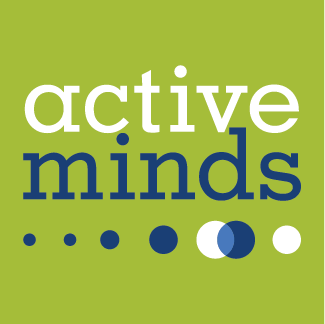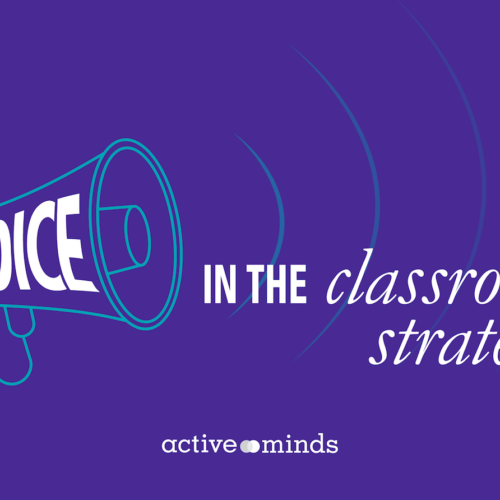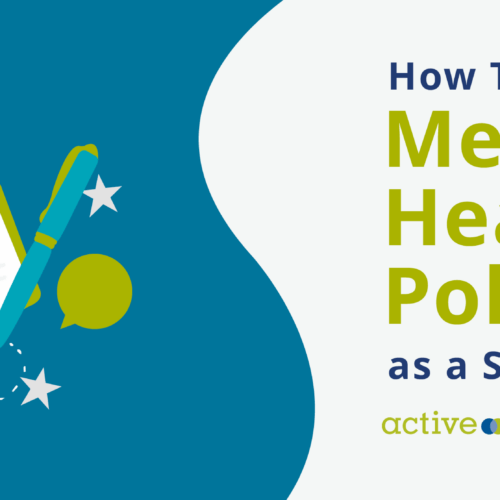Take a look at college students, like really take a look at the students on your campus. College students, especially first-generation college students, are scared, nervous, and quite frankly lost when they arrive at college. They’re far away from home with no support system. The responsibility for providing support now falls on the shoulders of our institutions, who are not always providing inclusive and concise language around supportive mental health plans, services, and rules.
As for myself, when I arrived at college, I thought my professors would become mentors, friends, and a support system, but without clear expectations from my university, my relationships remained a little obscured. Although some of my professors are supportive and understanding, it still remains unclear if their “official” job description includes supporting student mental health. Personally, I’ve reached out to my job and even professors about taking a day off for my mental health. But often, they didn’t understand or even respect why I needed to.
Eventually, I became drained, overwhelmed, tired, moody, and restless to the point where I couldn’t do anything. I didn’t feel like I could focus on school-work or anything else. Some days, it’s just hard getting out of bed trying to take on the day when you just can’t even function. The feeling of your body physically saying, “Nope, not today.” When universities penalize students for mental-health-related absences, they will not be able to excel academically or even socially. Not to mention, faculty and staff need mental health days, too. Mental health conditions affect a person’s mood, thinking, and behavior. Without proper language and clarity around the opportunity to take a “mental health day”, student’s grades will continue to suffer, among other things. A person’s day-to-day functioning can be severely impacted by their mental illness, I know mine is.
Today, in our new reality of living with COVID-19, many students are experiencing a significant increase in their mental health symptoms due to isolation and growing racial tension within our country and around the world. With the closure of campuses, students are finding themselves without treatment and guidance to weather the storm. Many campuses have returned to hybrid or in-person models, where issues around race in the classroom and mental health are still going unaddressed. Students may feel that their feelings of discomfort are still not being focused on by their institutions and are continuing to miss classes because of mental health-related issues. Below are some tips on how you can enhance your institution’s inclusion of mental health in its strategic plan and language this fall.
Most people are aware of the syllabi that college students have to go over on the first day of classes, a giant and ominous paper, filled with expectations from both our professors and campus. And if we’re lucky, there’s a resource or two thrown in there. On my campus, there is little to no information about counseling services, diversity, recent events, or any sort of information that’s pertinent to the struggles that my peers and I face. Syllabi should be a direct reflection of the campus’ stance on most academic realms. Yet often, administrators are missing the opportunity to provide students with tangible resources around mental health and diversity. We look to professors and administrators for guidance, yet their support for mental health and diversity is not always evident.
Implementing clear and concise language in a university’s strategic plan – and later in the syllabi- would drastically improve a majority of classroom settings. If students can see their professors and administrators show support and comfort, then they will feel comfortable enough to seek support. It seems that so many higher-ed institutions have become more focused on enrollment and less on the lives of students, mental health, and injustices that BIPOC students battle daily. It seems like professors are told that the default solution is to say “check out our counseling services,” but what if students need support getting there? How are professors helping to make sure that students make that step to go to the counseling services center when administrators aren’t giving them the proper guidance?
Students are overwhelmed and need support. We are staying up late almost every night trying to complete assignments that we’re confused about. We are working one to two jobs to stay afloat and trying to balance college with our social lives, all while living through a pandemic and racial injustices against people of color in our communities. These challenges present an opportunity for students to unite around change, even if it’s through our computer and phone screens. It’s time to make a change, take a stand, and make a difference for ourselves, our fellow students, and the generations of students to come. We must work with our campus administrators to create that change. By advocating for this inclusive language. By amplifying my voice and my fellow student’s voices. Together, Our Voice is Our Power.
Active Minds is calling on our national student network and advocates to partner with their campus multicultural affairs offices and student organizations to rally around BIPOC students’ mental health and well-being. You can join the movement by visiting our resource hub to pick at least one action item to accomplish on your campus.







